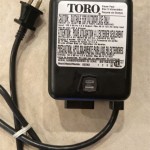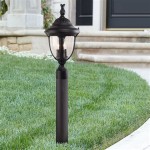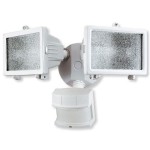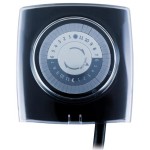What Soil Should I Use For Outdoor Potted Plants In Winter?
During the winter months, it's crucial to provide your outdoor potted plants with the appropriate soil to ensure their survival and well-being. The right soil can help protect your plants from harsh weather conditions, maintain adequate moisture levels, and provide essential nutrients for their growth. Choosing the right soil type plays a significant role in the overall health and resilience of your potted plants during the winter season.
Here are key factors to consider when selecting the ideal soil for your outdoor potted plants in winter:
1. Drainage:
Proper drainage is essential for preventing waterlogged soil, which can lead to root rot and other issues. Look for a potting mix with good drainage properties, allowing excess water to drain freely. A well-draining soil mix will typically contain a combination of ingredients like perlite, pumice, or vermiculite, which help improve drainage and aeration.
2. Soil Texture:
The texture of the soil is another important factor to consider. A soil mix that is too dense or compacted can restrict root growth and hinder water movement. Aim for a soil mix with a loose and airy texture that allows for good aeration and root penetration. A mixture of peat moss, perlite, and compost can provide a well-balanced soil texture for most potted plants.
3. Nutrient Content:
Your potted plants still need access to essential nutrients during the winter, albeit at a reduced rate compared to the growing season. Choose a potting mix that contains a balanced blend of macronutrients (nitrogen, phosphorus, and potassium) and micronutrients (calcium, magnesium, sulfur, and iron). These nutrients are crucial for maintaining plant health and supporting their natural defenses against winter stresses.
4. Organic Matter:
Incorporating organic matter into your potting mix can significantly improve its structure, fertility, and moisture-holding capacity. Organic matter, such as compost, peat moss, or well-rotted manure, helps provide a slow release of nutrients, enhances soil aeration, and promotes beneficial microbial activity. Organic matter also helps retain moisture, reducing the need for frequent watering during the winter months.
5. pH Level:
The pH level of the soil is an important factor to consider for specific plant species. Most outdoor potted plants prefer a slightly acidic to neutral pH range (between 6.0 and 7.0). If you're unsure about the pH requirements of your plants, it's best to use a potting mix with a neutral pH. You can also test the pH of your soil using a soil pH meter or test kit to ensure it's suitable for your plants.
Remember that the ideal soil for outdoor potted plants in winter may vary depending on the specific plant species and your local climate conditions. Always research the specific needs of your plants and adjust your soil selection accordingly.

Don T Let Outdoor Container Plants Fall Prey To Winter Here S How Prepare The Seattle Times

Outdoor Winter Container Garden Ideas And Inspiration

The Best Winter Containers From Outdoor Planters To Window Boxes Finegardening

Best Winter Plants For Pots 25 Stunning Low Maintenance Growing Family

How To Protect Potted Plants In Winter

Best Winter Plants For Pots Bbc Gardeners World

Transferring Potted Plants Into The Soil Before Winter Creative Cain Cabin

How To Fertilize Outdoor Potted Plants Containers Get Busy Gardening

How To Keep Plants Warm In Winter Coco Coir

Protect Pot Plants From Frost In Winter At Gardening Naturally
Related Posts







